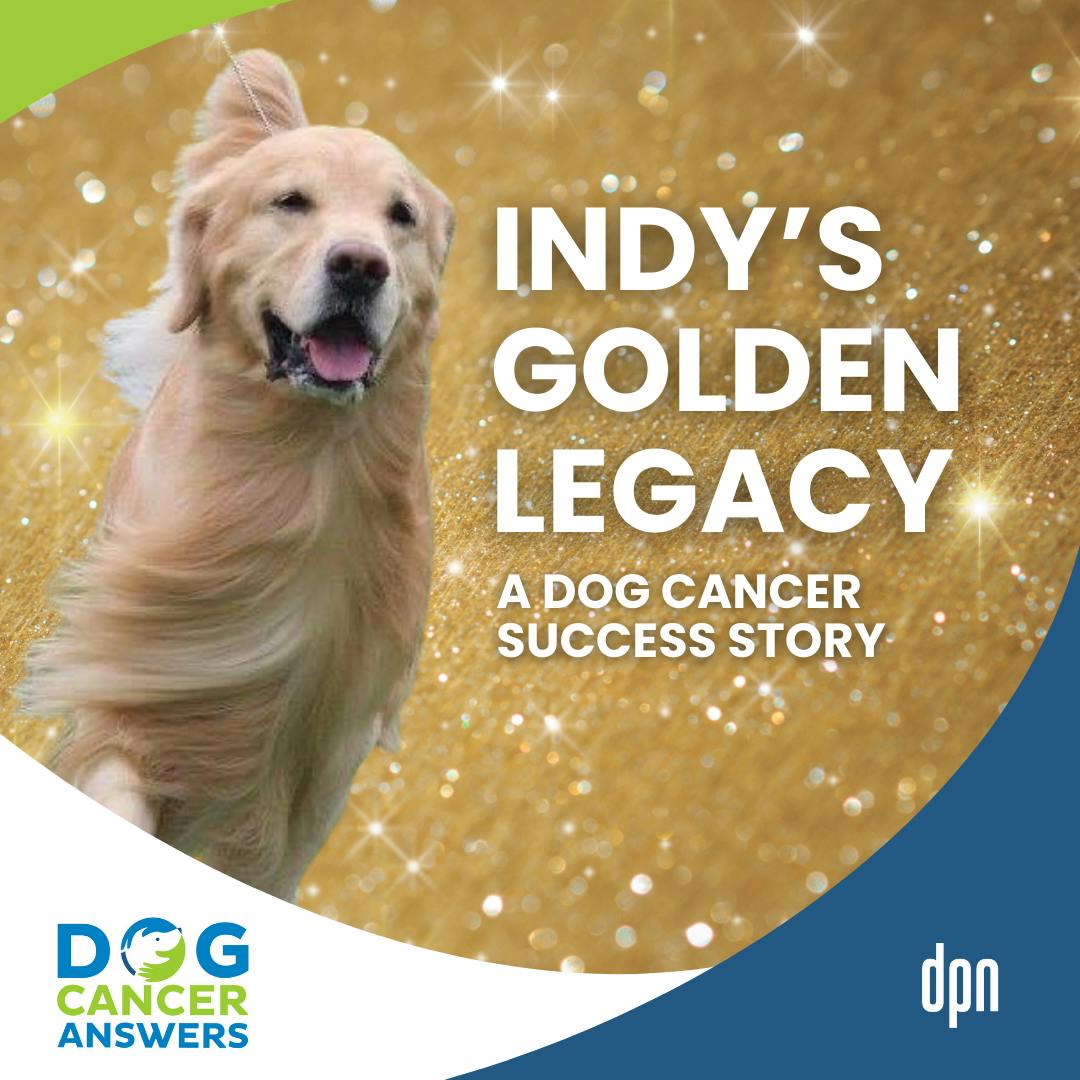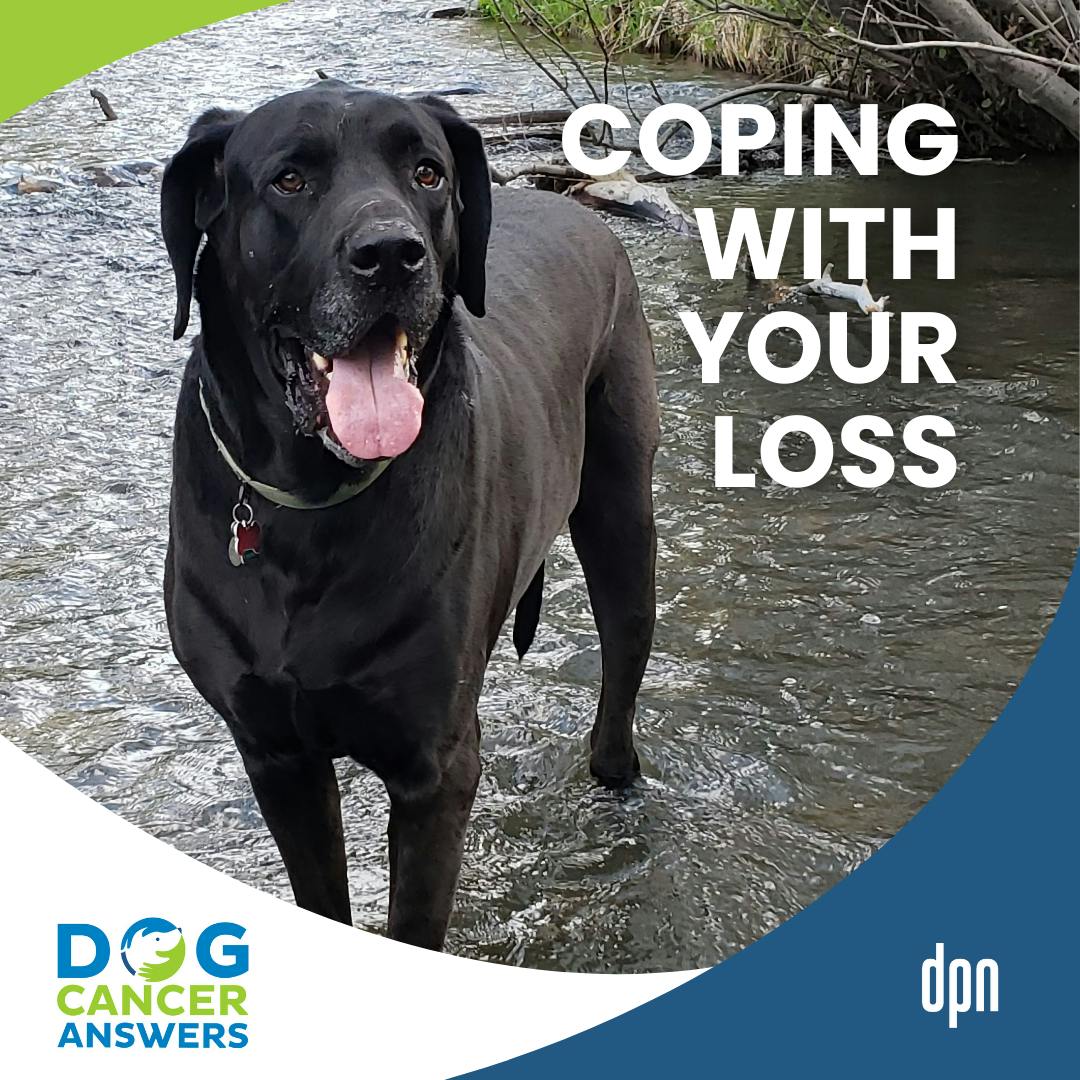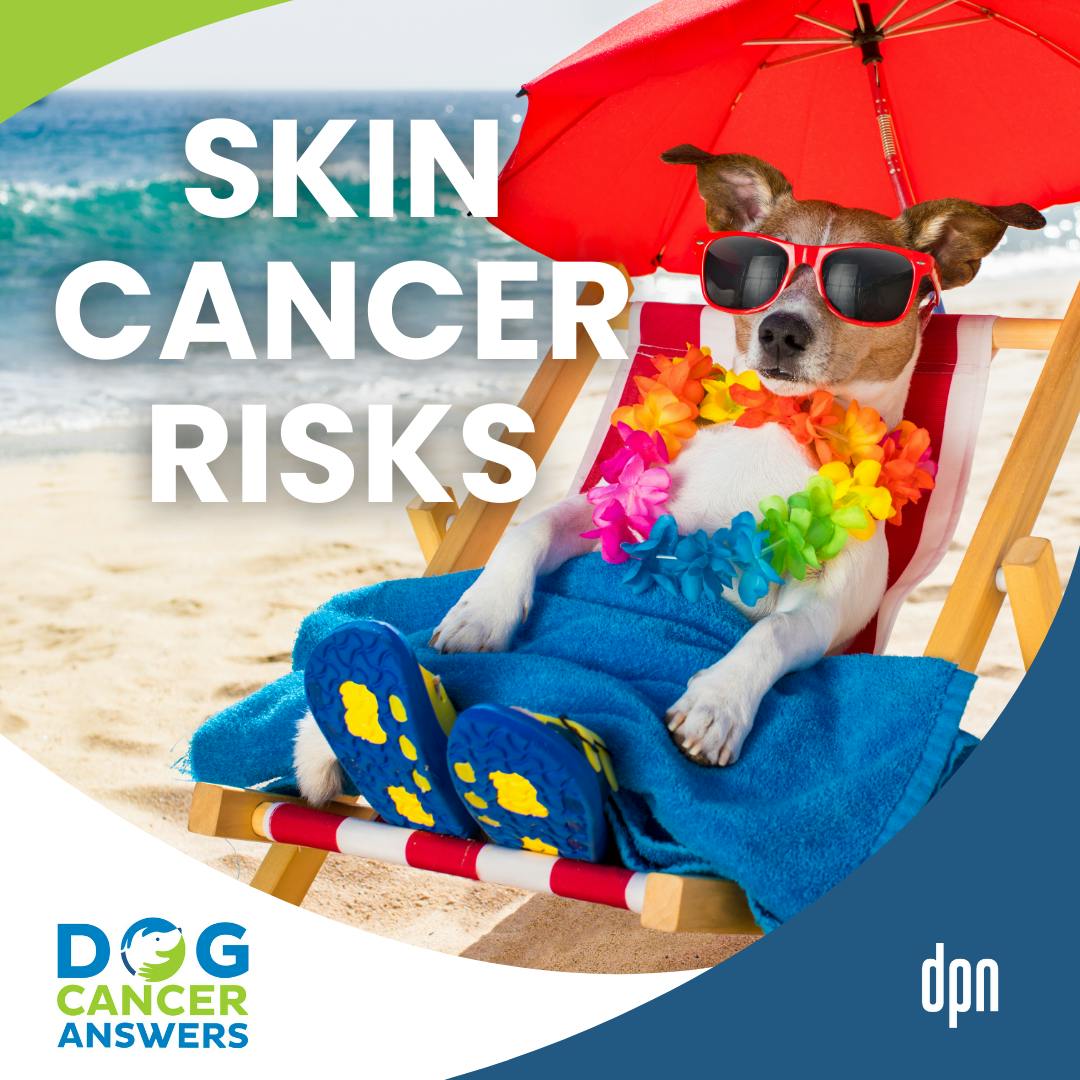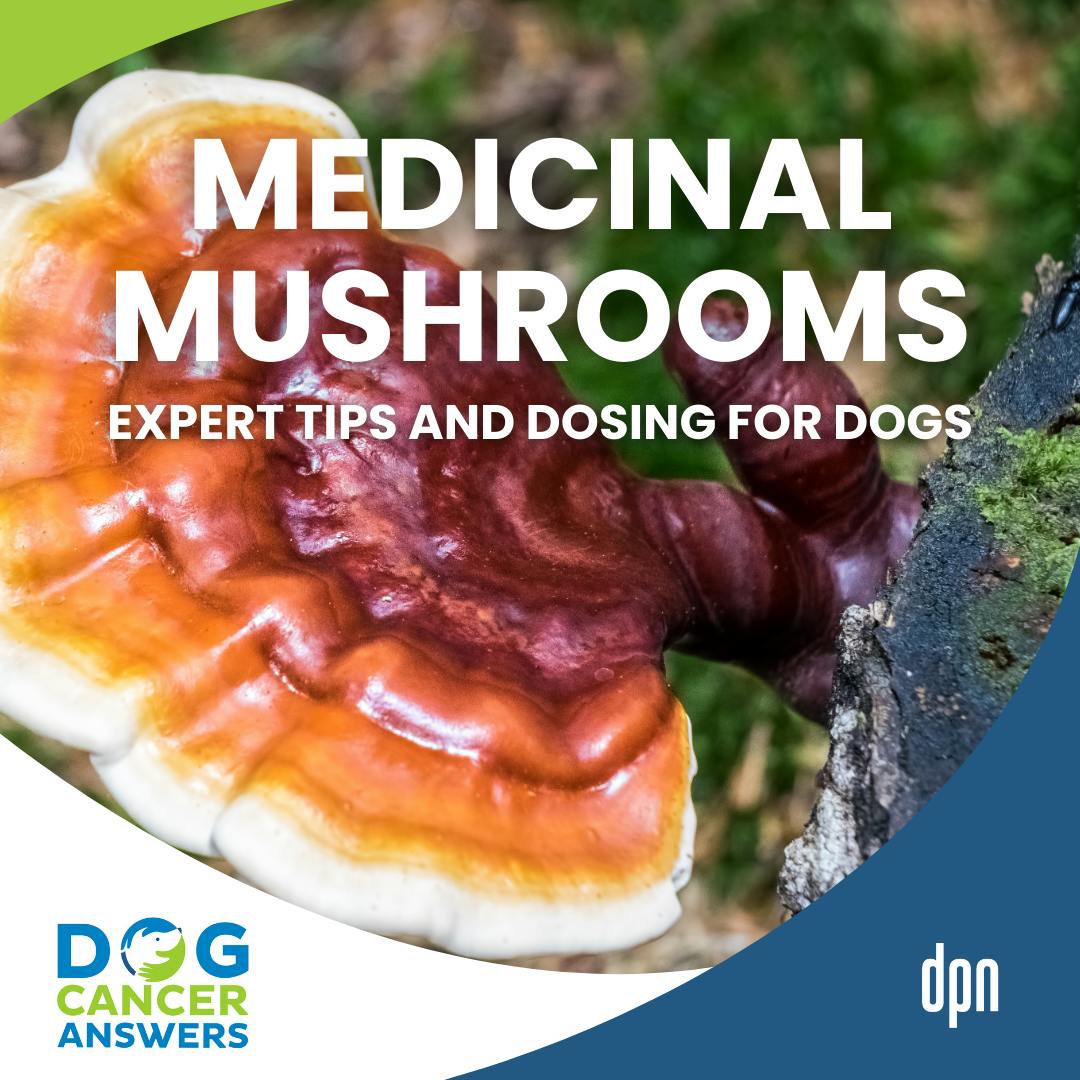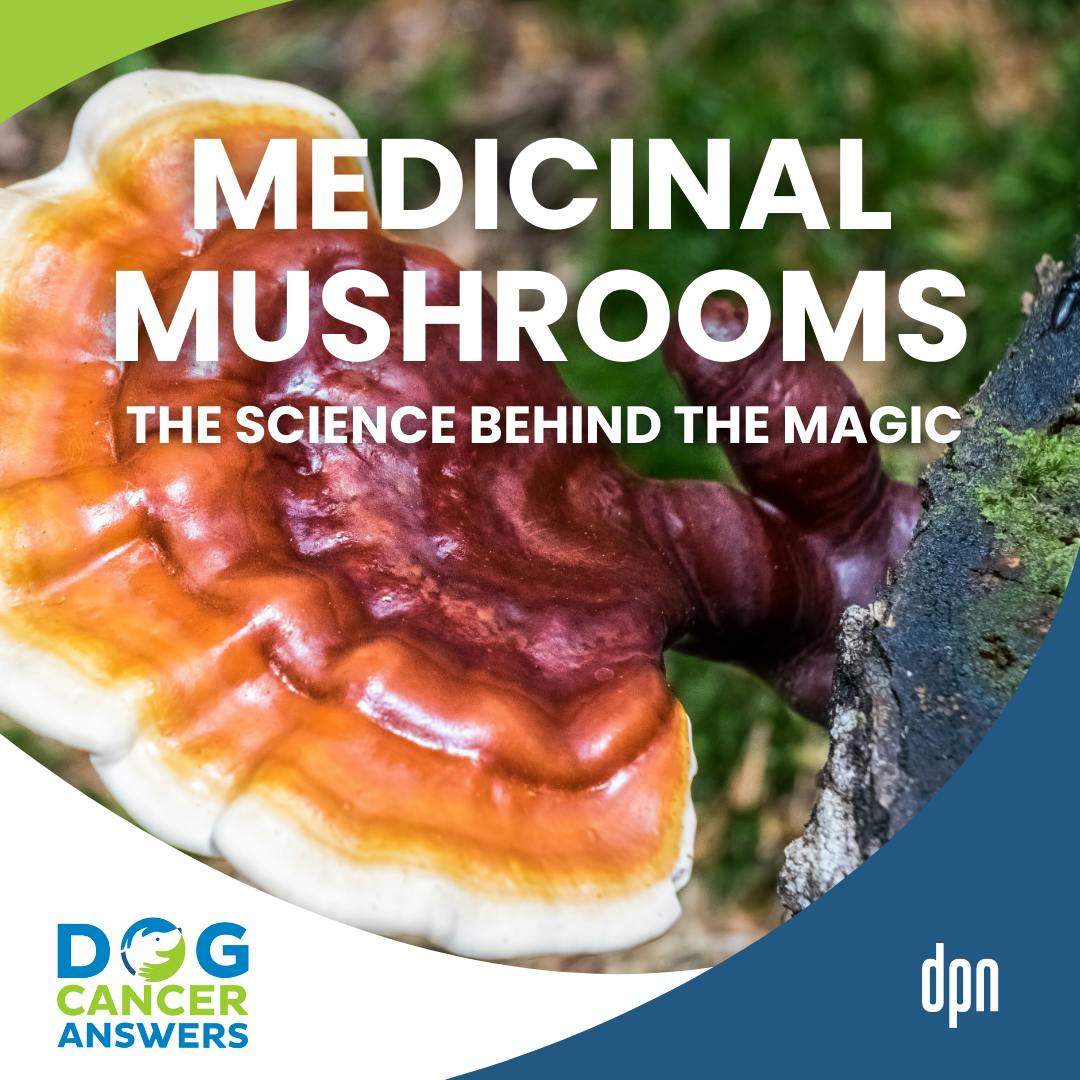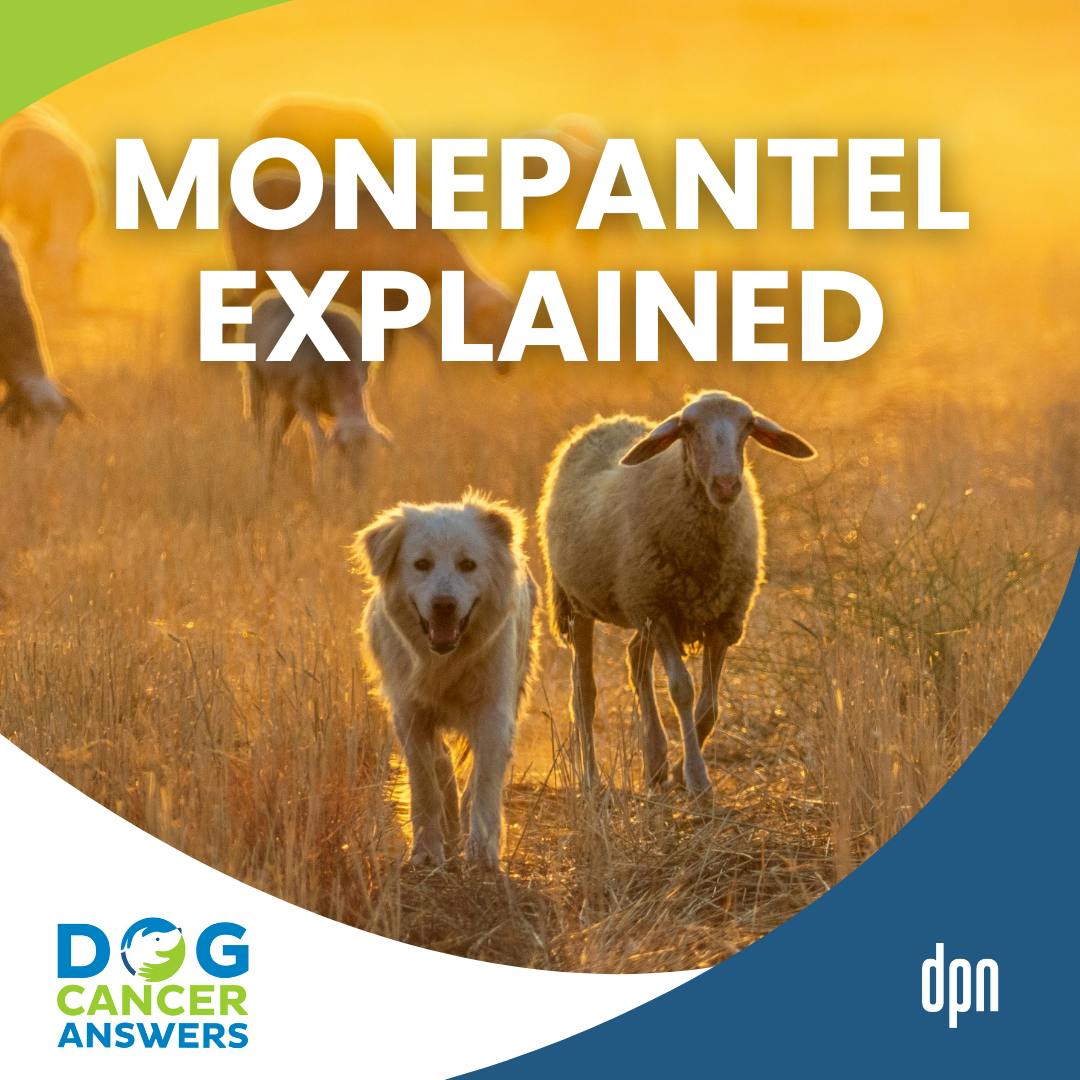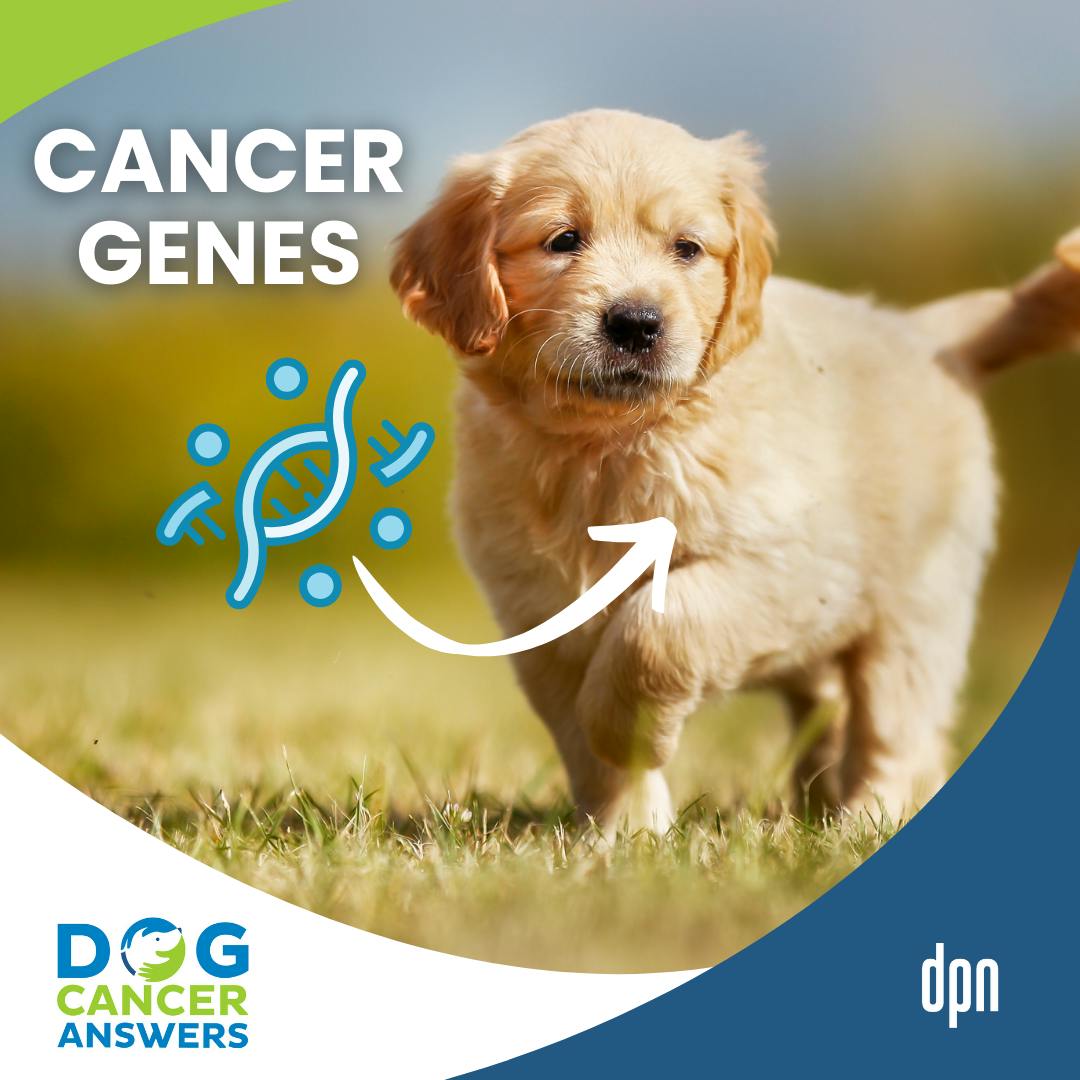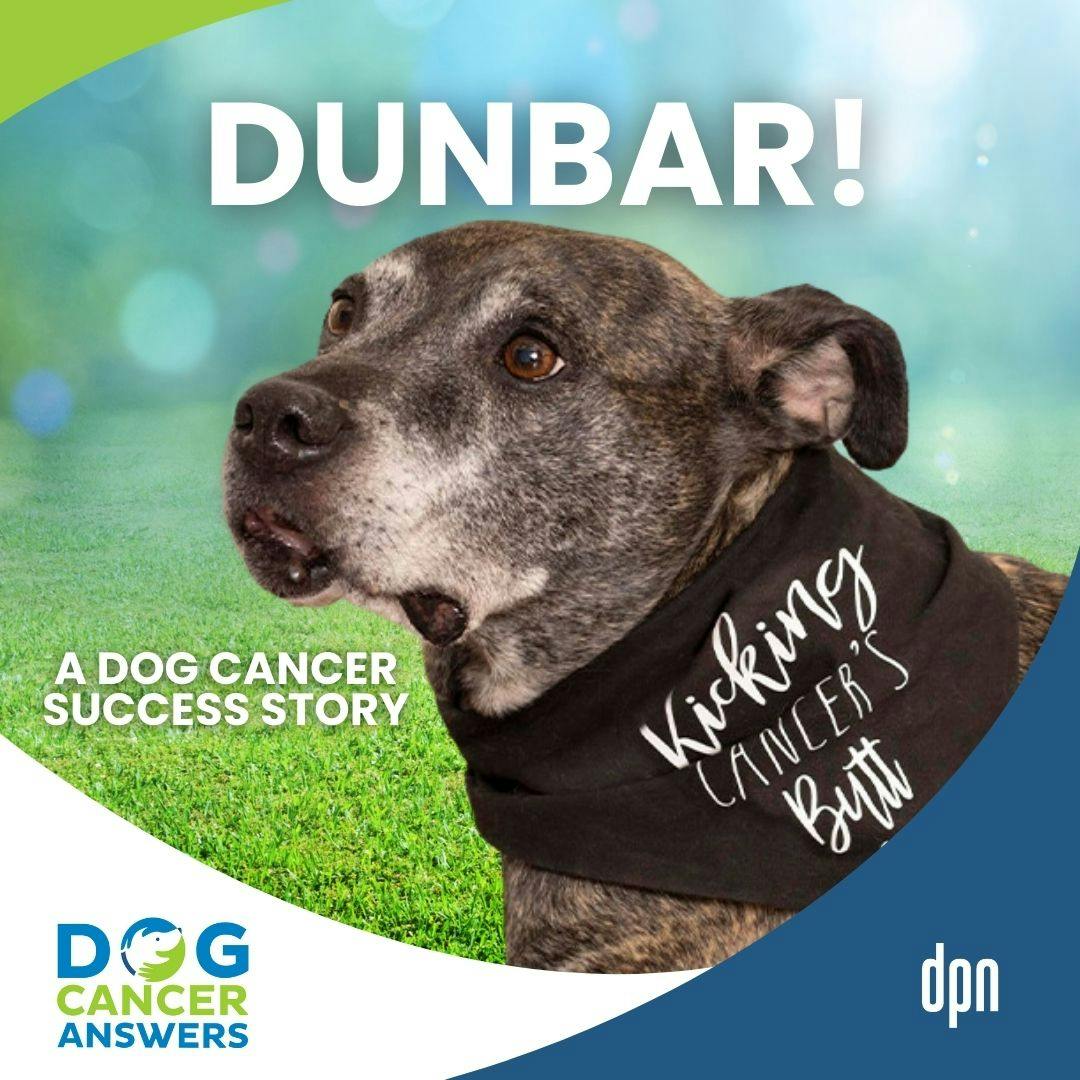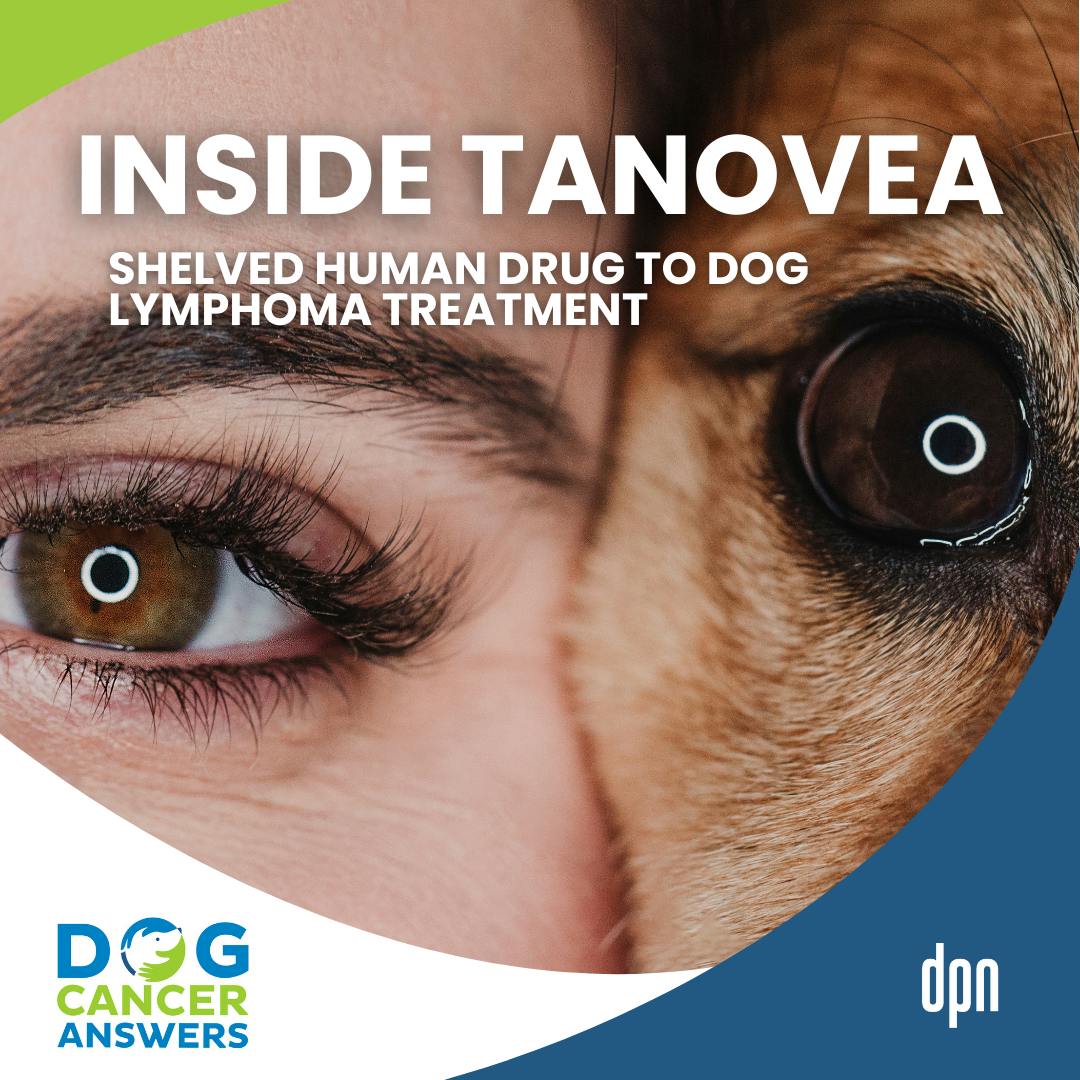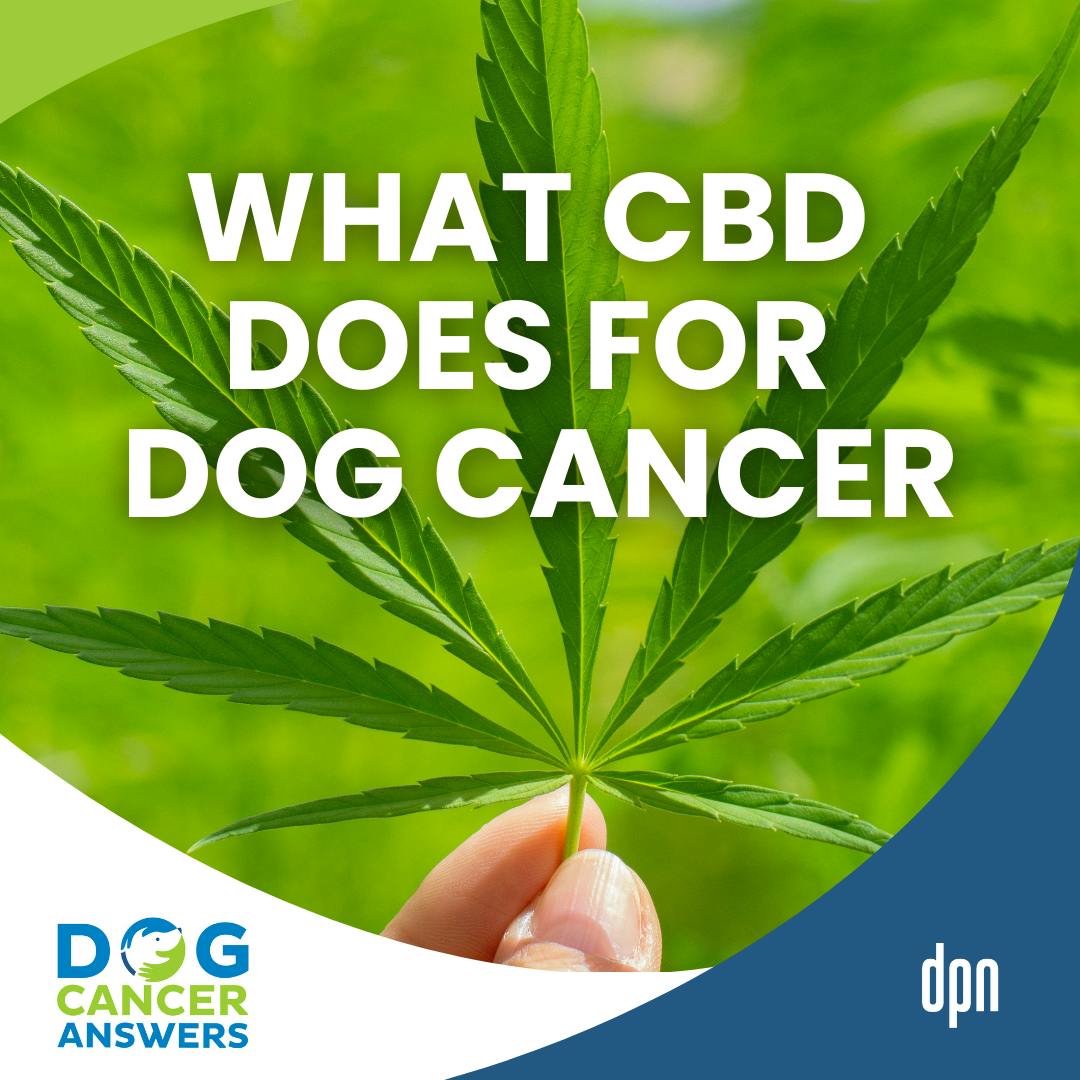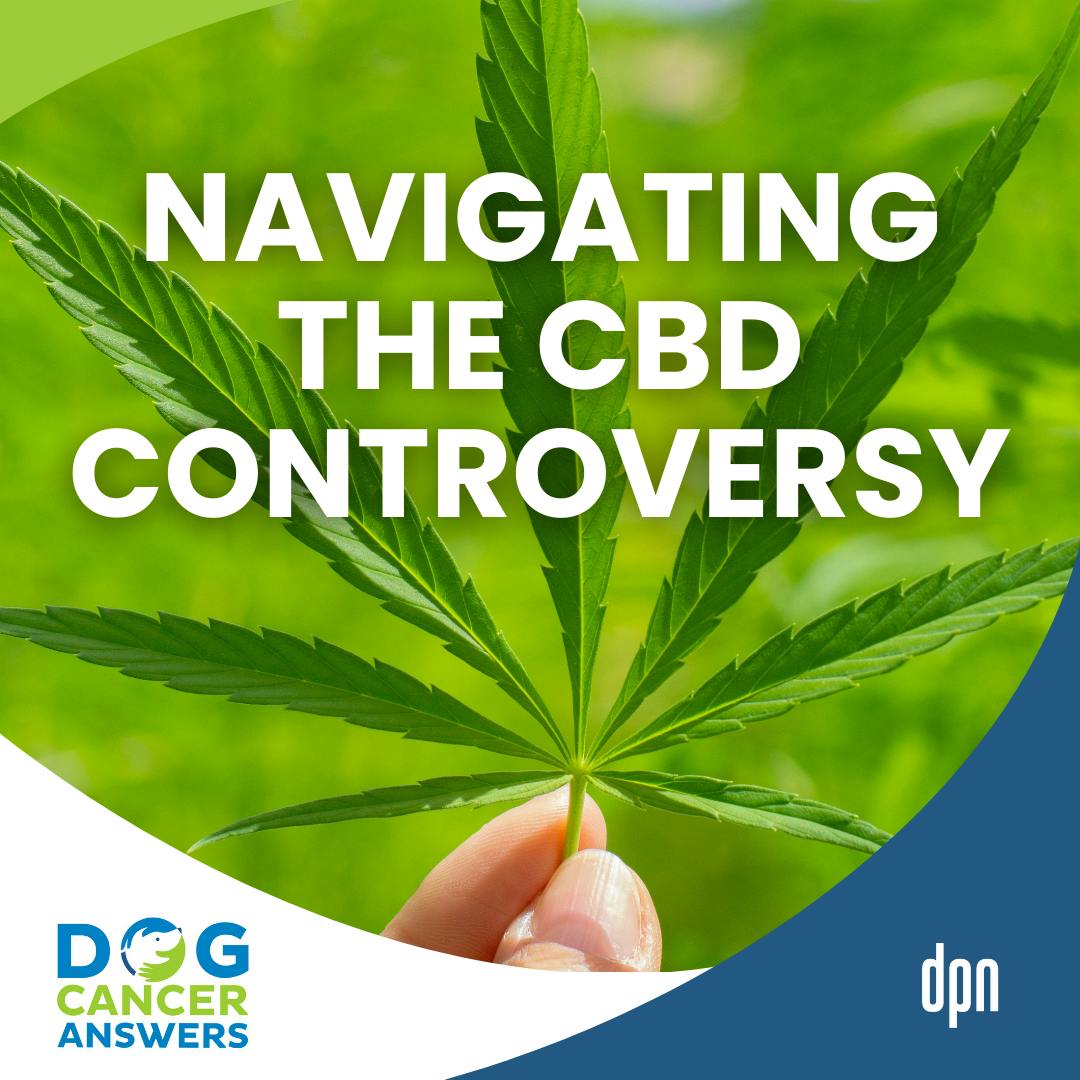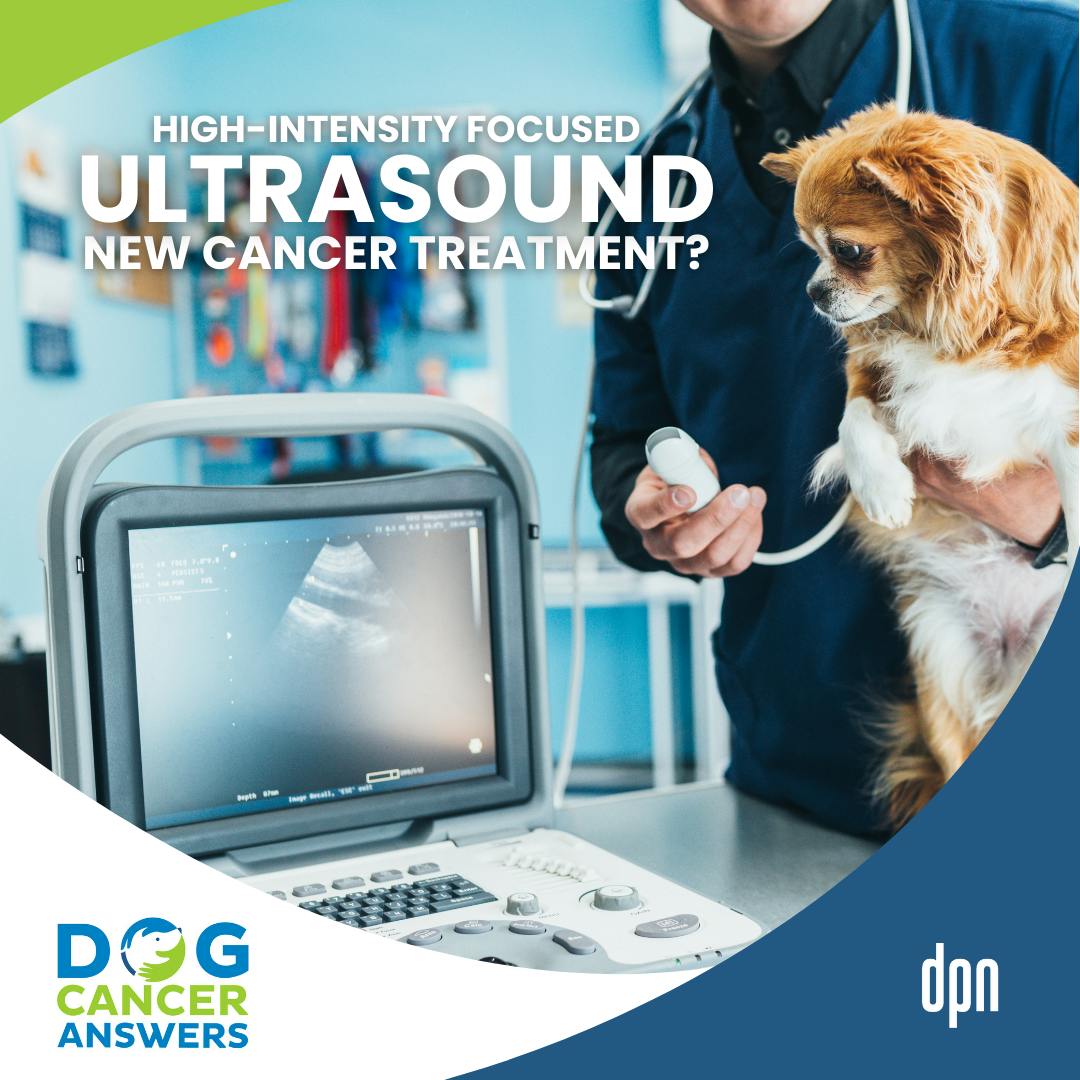Discover Dog Cancer Answers
Dog Cancer Answers

Dog Cancer Answers
Author: Dog Podcast Network
Subscribed: 36Played: 714Subscribe
Share
Copyright © 2012-2023 Dog Podcast Network
Description
If your dog has cancer, this podcast can help. Vetted advice from real veterinarians who answer your questions. Call our listener line to ask your question: 808-868-3200.
301 Episodes
Reverse
Certified veterinary pain practitioner Tasha McNerney talks about the importance of managing pain in dogs after surgery. She goes over common concerns pet parents have about pain meds, the risks of skipping them, and practical tips for ensuring a smooth recovery. From understanding how pain signals affect the brain to the benefits of preemptive pain control, this episode is packed with actionable advice.
Key Topics Covered:
Why pain control is crucial for dogs post-surgery
The risks of stopping pain medications too early
How chronic pain can alter a dog’s behavior
Preemptive pain management: Why it matters
Recognizing signs of pain in your dog
The role of nutrition in recovery
Additional therapies like massage, acupuncture, and supplements
Your Voice Matters!
If you have a question for our team, or if you want to share your own hopeful dog cancer story, we want to hear from you! Go to https://www.dogcancer.com/ask to submit your question or story, or call our Listener Line at +1 808-868-3200 to leave a question.
Related Videos:
https://www.youtube.com/watch?v=s2w5AyaLqrw
https://www.youtube.com/watch?v=ZvA7W9XlciM
Related Links:
Pain management overview article: https://www.dogcancer.com/articles/side-effects/pain-management-for-dogs/
Cerenia article: https://www.dogcancer.com/articles/drugs/cerenia-for-dogs/
Chapters:
00:00 Introduction
01:00 Meet Tasha McNerney
02:15 Acute vs. Chronic Pain
04:00 Why Pain Meds
06:30 Untreated Pain
09:15 Sedation
11:45 Preventing Pain
14:00 Recognizing Pain
16:15 Behavioral Changes
18:45 Dogs with Cancer
20:15 Nutrition’s Healing Role
23:00 Eating Again
24:45 Acupuncture and Massage
25:30 Closing Thoughts and Resources
Get to know Tasha McNerney: https://www.dogcancer.com/people/tasha-mcnerney-bs-cvt-cvpp-vts-anesthesia/
For more details, articles, podcast episodes, and quality education, go to the episode page: https://www.dogcancer.com/podcast/
Learn more about your ad choices. Visit megaphone.fm/adchoices
Indy, a Golden Retriever and participant in the groundbreaking Golden Retriever Lifetime Study, left a profound legacy in the fight against canine cancer. Join Molly Jacobson as she talks with Indy’s mom, Kim Peri, and Dr. Mike Lappin about Indy's journey with lymphoma, the challenges of his treatment, and the incredible community that has formed around the study. Discover the lessons learned from this longitudinal research and how it’s shaping the future of cancer treatment for dogs. This heartfelt episode highlights the enduring impact one dog can make.
Highlights:
• Introduction to Indy and his diagnosis of T-cell lymphoma.
• Insights into the Golden Retriever Lifetime Study and its goals.
• Dr. Mike Lappin’s role in the study and his efforts with the DNA Repository.
• Kim’s reflections on Indy's unique legacy and the supportive community.
• Lessons learned about spay/neuter timing, cancer risks, and proactive care.
Your Voice Matters!
If you have a question for our team, or if you want to share your own hopeful dog cancer story, we want to hear from you! Go to https://www.dogcancer.com/ask to submit your question or story, or call our Listener Line at +1 808-868-3200 to leave a question.
Related Videos:
https://www.youtube.com/watch?v=WEvFhsC_TyY
Related Links:
Morris Animal Foundation’s Dog Cancer Research podcast episode: https://www.dogcancer.com/podcast/trials-and-research/morris-animal-foundations-dog-cancer-research-dr-janet-patterson-kane-deep-dive/
Golden Retriever Lifetime Study: https://www.morrisanimalfoundation.org/golden-retriever-lifetime-study
Golden Retriever DNA Repository: https://grca.org/about-the-breed/health-research/dna-repository/
OFA DNA Repository: https://ofa.org/about/dna-repository/
The Golden Retriever Foundation: https://goldenretrieverfoundation.org/GRF/
Canine Valley Fever Project: http://www.caninevalleyfeverproject.com/
PetDx Clinical Studies: https://petdx.com/clinical-studies/
Chapters:
00:00 Introduction
00:30 - Introducing Kim Peri and Dr. Mike Lappin
01:15 - Meeting Indy: A Secret Santa Story
02:30 - Indy's Lymphoma Diagnosis
04:00 - Inside the Golden Retriever Lifetime Study
07:15 - What We’ve Learned About Spay/Neuter Timing
12:00 - The Emotional Connection Between Participants
16:45 - DNA Repository: Advancing Canine Research
22:00 - Indy's Final Days: A Family’s Farewell
28:00 - Kim’s Advocacy for Dog Cancer Research
34:15 - Continuing Indy's Legacy: Joining New Studies
40:00 - How Training Builds Bonds Between Dogs and Humans
45:30 - The Community of the Golden Retriever Lifetime Study
53:00 - Closing Reflections: A Dog’s Impact on the Heart
Get to know Dr. Mike Lappin: https://www.dogcancer.com/people/mike-lappin-dvm/
Get to know Kim Peri: https://www.dogcancer.com/people/kimberly-a-peri/
For more details, articles, podcast episodes, and quality education, go to the episode page: https://www.dogcancer.com/podcast/
Learn more about your ad choices. Visit megaphone.fm/adchoices
Susanne Kogut, President of Petco Love, talks about their inspiring mission to help pets and their people. Learn how Petco Love supports dog cancer research, funds treatment for pet parents in need, and even pioneers groundbreaking initiatives like lost pet facial recognition and free vaccination drives.
Topics Covered:
• Why the Petco Foundation became Petco Love
• Petco Love Lost: The lost-and-found pet database revolution
• 1 million free vaccines for dogs and cats: How it’s saving lives
• $18 million invested in dog cancer research and subsidized treatments
• Groundbreaking immunotherapy and ultrasound research for canine cancer
• How you can support Petco Love’s mission
Donate:
Support Petco Love’s life-saving initiatives by donating at your local Petco store, online at https://www.petcolove.org, or during checkout at Petco’s online store.
Your Voice Matters!
If you have a question for our team, or if you want to share your own hopeful dog cancer story, we want to hear from you! Go to https://www.dogcancer.com/ask to submit your question or story, or call our Listener Line at +1 808-868-3200 to leave a question.
Related Videos:
https://www.youtube.com/watch?v=WEvFhsC_TyY
Related Links:
Petco Love: https://petcolove.org/
Petco Love Lost: https://petcolove.org/lost/
Petco Love Care vaccination program: https://petcolove.org/care/
Morris Animal Foundation: https://www.morrisanimalfoundation.org/
Mosby Foundation: https://themosbyfoundation.org/programs/
FACE Foundation: https://face4pets.org/
Charlottesville-Albemarle SPCA: https://www.caspca.org/
Chapters:
00:00 Introduction
01:15 - From Petco Foundation to Petco Love
03:00 - Love Lost: A New Solution for Lost Pets
06:30 - Free Vaccination Drive for Preventable Diseases
09:15 - Petco Love’s $18 Million Dog Cancer Initiative
12:00 - Cutting-Edge Canine Cancer Research Highlights
14:30 - Immunotherapy Vaccines for Dogs with Lymphoma
16:00 - Breakthroughs in Focused Ultrasound Technology
18:45 - Subsidized Cancer Treatment Programs at Top Universities
21:00 - How Pet Parents Can Access Petco Love Funds
23:30 - Susanne’s Journey: From Corporate Attorney to Animal Advocate
27:00 - How You Can Support Petco Love’s Mission
Get to know Susanne Kogut: https://www.dogcancer.com/people/susanne-kogut/
For more details, articles, podcast episodes, and quality education, go to the episode page: https://www.dogcancer.com/podcast/
Learn more about your ad choices. Visit megaphone.fm/adchoices
Dr. Brooke Britton discusses degranulation events—a scary potential when a dog has mast cell tumors. Learn what degranulation is, why it happens, and how it can affect your dog. Also: practical tips for managing symptoms, potential connections between allergies and cancer, and how to care for dogs with mast cell tumors.
Topics Discussed:
• What is a degranulation event?
• How mast cell tumors cause degranulation
• Symptoms dogs may experience during a degranulation event
• The role of allergies and chronic inflammation in mast cell tumor risk
• Medications and treatments to manage symptoms
• Low-histamine diets and their role in comfort care
• Tips for preventing future mast cell tumor growth
• The importance of early detection and regular vet check-ups
Your Voice Matters!
If you have a question for our team, or if you want to share your own hopeful dog cancer story, we want to hear from you! Go to https://www.dogcancer.com/ask to submit your question or story, or call our Listener Line at +1 808-868-3200 to leave a question.
Related Videos:
https://www.youtube.com/watch?v=Al7jjCXVhuE
https://www.youtube.com/watch?v=6eb4GrcH_f8
Related Links:
Our article on mast cell tumors: https://www.dogcancer.com/articles/types-of-dog-cancer/mast-cell-tumors-in-dogs/
Chapters:
00:00 Introduction
01:15 What Are Mast Cell Tumors?
02:30 The Role of Mast Cells in Normal Immune Response04:00 What Happens During a Degranulation Event?06:45 Symptoms Dogs May Experience During Degranulation09:00 How Dogs Might Feel During Degranulation Events11:00 Stomach Upset and Ulcers in Dogs with Mast Cell Tumors13:00 The Link Between Allergies and Mast Cell Tumors16:00 Managing Allergies in Dogs to Reduce Risk18:30 Diet Considerations: Low-Histamine and Commercial Diets22:00 Medications for Degranulation Symptoms: Benadryl and Tagamet25:00 The Truth About Diet and Cancer Prevention27:30 Why Balanced Diets Are Key for Dogs with Cancer29:45 Closing Thoughts on Degranulation and Mast Cell Tumors34:00 Outro: Support and Resources for Dog Owners
Get to know Dr. Brooke Britton: https://www.dogcancer.com/people/brooke-britton-dvm-dacvim-oncology/
For more details, articles, podcast episodes, and quality education, go to the episode page: https://www.dogcancer.com/podcast/
Learn more about your ad choices. Visit megaphone.fm/adchoices
In 2023, Molly Jacobson speaks with Dr. Michelle MacLeay, Chief Scientific Officer of the AKC Canine Health Foundation, about groundbreaking cancer research that dog owners are making possible. Topics include:
• One Health Approach: How canine cancer research benefits both dogs and humans.
• New Studies: Details on 13 new cancer studies funded this year, including those on hemangiosarcoma and genetic therapies.
• Nutrition Challenges in Research: Why standardizing dog diets in studies is crucial.
• Precision Medicine: Targeting cancer treatment based on the genetics of the dog and the tumor.
• Funding and Collaboration: How breed clubs and donations are advancing canine health.
• Learn how your support can contribute to saving lives and advancing science for both dogs and humans.
Your Voice Matters!
If you have a question for our team, or if you want to share your own hopeful dog cancer story, we want to hear from you! Go to https://www.dogcancer.com/ask to submit your question or story, or call our Listener Line at +1 808-868-3200 to leave a question.
Related Videos:
https://www.youtube.com/watch?v=WEvFhsC_TyY
https://www.youtube.com/watch?v=_92w6TTXM5c
Related Links:
AKC Canine Health Foundation: https://www.akcchf.org/
Canine Health Foundation Tribute Page: https://www.akcchf.org/how-to-help/tribute/
AKC Canine Health Foundation Facebook page: https://www.facebook.com/akccaninehealthfoundation
One Health Initiative: https://onehealthinitiative.com/
Ethos Veterinary Health Clinical Studies: https://www.ethosvet.com/our-services/clinical-studies/
American Veterinary Medical Association Animal Health Studies Database: https://ebusiness.avma.org/aahsd/study_search.aspx
Google Scholar: https://scholar.google.com/
Chapters:
00:00 Introduction
00:15 - Meet Dr. Michelle MacLeay
00:45 - What Is One Health?
02:00 - Challenges in cross-species research
06:15 – Dogs as environmental sentinels
08:00 - Hemangiosarcoma and Dog Cancer
13:15 - Precision Medicine
15:45 - Nutrition and Cancer Studies
18:30 - Hemangiosarcoma study
22:00 - Finding clinical trials
26:00 - Donating to Research
30:00 - New Frontiers
37:15 - New Dog Tips
40:45 - Get Involved
Get to know Dr. Jennifer MacLeay: https://www.dogcancer.com/people/jennifer-macleay-dvm-phd-mba/
For more details, articles, podcast episodes, and quality education, go to the episode page: https://www.dogcancer.com/podcast/
Learn more about your ad choices. Visit megaphone.fm/adchoices
In this heartfelt episode of Dog Cancer Answers, Dr. Adrienne Anderson shares the story of her heart dog, Ludo, a 160-pound Great Dane mix who profoundly shaped her life. Dr. Anderson discusses the unique bond they shared, his medical struggles, and the difficult decision to euthanize him herself. The discussion explores how to cope with the grief of losing a beloved dog and the healing process of welcoming a new dog into your life.
What You’ll Learn in This Episode:
• The special connection we share with our “heart dogs”
• Dr. Anderson’s personal journey with her dog Ludo
• How to process grief after the loss of a pet
• Why getting a new dog can be a powerful healing experience
Your Voice Matters!
If you have a question for our team, or if you want to share your own hopeful dog cancer story, we want to hear from you! Go to https://www.dogcancer.com/ask to submit your question or story, or call our Listener Line at +1 808-868-3200 to leave a question.
Related Videos:
https://www.youtube.com/watch?v=J5Bh1wIp5bY
Related Links:
Dr. Anderson’s article on how Pets Are Family: https://www.dogcancer.com/articles/stress-and-finances/pets-are-family/
Chapters:
00:00 Introduction
00:30 Meet Ludo: A Life-Changing Great Dane
01:15 The Indescribable Bond of a Heart Dog
01:45 Ludo’s Medical Challenges and Final Goodbye
02:15 Choosing to Euthanize Ludo Personally
02:45 The Unique Love of a Heart Dog
03:15 Coping with the Loss of a Beloved Pet
04:00 Why Getting a New Dog Can Be Healing
04:45 A New Kind of Love: Opening Your Heart Again
05:15 Reflecting on the Many Dogs We Love Over a Lifetime
06:00 Closing Thoughts: Gratitude for Heart Dogs
06:30 Outro & DogCancer.com
Get to know Dr. Adrienne Anderson: https://www.dogcancer.com/people/adrienne-anderson-ma-dvm/
For more details, articles, podcast episodes, and quality education, go to the episode page: https://www.dogcancer.com/podcast/
Learn more about your ad choices. Visit megaphone.fm/adchoices
Molly Jacobson speaks with Dr. Erica Ancier about Pulsed Electromagnetic Field (PEMF) therapy and its applications for dogs with cancer, chronic pain, arthritis, and more. They discuss the safety of PEMF therapy, how it works, its benefits, and how to use it at home to improve your dog's quality of life.
Topics Covered:
• What is PEMF therapy?
• How PEMF therapy helps with pain relief, inflammation, and healing.
• The debate about PEMF therapy and cancer safety.
• Combining PEMF therapy with chemotherapy for better results.
• Practical tips for using PEMF devices at home.
• Dr. Ancier's personal experience using PEMF therapy for her dog.
Key Takeaway: PEMF therapy is a safe, affordable, and effective tool to improve your dog’s quality of life, especially when managing pain and inflammation.
Your Voice Matters!
If you have a question for our team, or if you want to share your own hopeful dog cancer story, we want to hear from you! Go to https://www.dogcancer.com/ask to submit your question or story, or call our Listener Line at +1 808-868-3200 to leave a question.
Related Videos:
https://www.youtube.com/watch?v=ZvA7W9XlciM
https://www.youtube.com/watch?v=s2w5AyaLqrw
Related Links:
Assisi Animal Health/Zomedica https://assisianimalhealth.com/
Respond Systems https://respondsystems.com/pemf/
BEMER https://life.bemergroup.com/pemf-pulse-electro-magnetic-field/
Effect of Targeted Pulsed Electromagnetic Field Therapy on Canine Postoperative Hemilaminectomy: A Double-Blind, Randomized, Placebo-Controlled Clinical Trial: https://meridian.allenpress.com/jaaha/article-abstract/55/2/83/184239/Effect-of-Targeted-Pulsed-Electromagnetic-Field?redirectedFrom=fulltext
Chapters:
00:00 Introduction
00:30 - Dr. Ancier’s Experience with PEMF Therapy
01:15 - What is PEMF Therapy? How It Works
03:00 - Benefits of PEMF: Pain Relief and Inflammation Reduction
04:45 - Controversy Around PEMF Therapy and Cancer Safety
06:30 - FDA-Approved Uses for PEMF in Humans and Dogs
08:15 - Situations to Avoid PEMF Therapy (Contraindications)
10:00 - Using PEMF Devices at Home: Tips and Safety
13:00 - Combining PEMF Therapy with Chemotherapy
16:00 - Practical Uses for PEMF: Arthritis, Recovery, and Anxiety
22:00 - Device Options: Loops, Mats, and Costs
25:30 - Longevity of Devices and Maintenance Tips
27:15 - Enhancing Quality of Life for Dogs with PEMF Therapy
30:00 - Closing Thoughts and Life Quality vs. Quantity
Get to know Dr. Erica Ancier: https://www.dogcancer.com/people/erica-ancier-dvm-cva-ccrp/
For more details, articles, podcast episodes, and quality education, go to the episode page: https://www.dogcancer.com/podcast/
Learn more about your ad choices. Visit megaphone.fm/adchoices
Dr. Brooke Britton answers Lou’s question about his dog’s cutaneous hemangiosarcoma. Learn about the risks of recurrence, treatment options, and proactive steps to monitor your dog for future tumors. Dr. Britton also discusses the breeds most at risk, the role of sun exposure, and whether supplements like Yunnan Baiyao might help.
What You'll Learn:
• What is cutaneous hemangiosarcoma, and how does it differ from other forms?
• The importance of surgical margins in preventing recurrence.
• How to monitor for new lumps or bumps in predisposed breeds.
• When chemotherapy might be needed for more invasive tumors.
• Tips for sun safety and preventative care for your dog.
Your Voice Matters!
If you have a question for our team, or if you want to share your own hopeful dog cancer story, we want to hear from you! Go to https://www.dogcancer.com/ask to submit your question or story, or call our Listener Line at +1 808-868-3200 to leave a question.
Related Videos:
https://www.youtube.com/watch?v=eusVRp6U0Cs
https://www.youtube.com/watch?v=eUP3HcW1x-M
https://www.youtube.com/watch?v=-D2zBtfRIEU
Related Links:
Our article on hemangiosarcoma: https://www.dogcancer.com/articles/types-of-dog-cancer/hemangiosarcoma-in-dogs/
Chapters:
00:00 Introduction
00:45 Lou's Question: Will it come back?
01:45 Dr. Britton's Insights: Factors influencing recurrence risks.
03:15 Breeds at Risk: Lightly pigmented and thin-coated dogs.
04:45 Prevention Tips: Sun safety and monitoring new lumps.
06:00 Supplements: Does Yunnan Baiyao help?
09:00 Treatment Options: Surgery, chemotherapy, and more.
10:30 Metastasis Risks: Where and how it spreads.
13:00 Genetic Predispositions: Understanding the bigger picture.
14:30 Closing Thoughts: Key takeaways for proactive care.
Get to know Dr. Brooke Britton: https://www.dogcancer.com/people/brooke-britton-dvm-dacvim-oncology/
For more details, articles, podcast episodes, and quality education, go to the episode page: https://www.dogcancer.com/podcast/
Learn more about your ad choices. Visit megaphone.fm/adchoices
Meet Dr. Michelle White as she talks about the revolutionary Darwin’s Ark Cancer Project. Learn how dog lovers can contribute to cutting-edge cancer research through surveys, genetic testing, and environmental sampling. Dr. White explains the importance of data collection, the future of canine genetics, and how you can join this mission to improve the lives of dogs everywhere.
Key Topics Covered:
• Overview of the Darwin’s Ark Cancer Project.
• How dogs’ genetics and behaviors are linked to breed and health outcomes.
• The value of environmental data in understanding cancer risks.
• How owners can participate in the project through surveys, DNA samples, and more.
• Why dog cancer research matters and how it impacts both dogs and humans.
• A compassionate message for dog owners about cancer guilt.
Your Voice Matters!
If you have a question for our team, or if you want to share your own hopeful dog cancer story, we want to hear from you! Go to https://www.dogcancer.com/ask to submit your question or story, or call our Listener Line at +1 808-868-3200 to leave a question.
Related Videos:
https://www.youtube.com/watch?v=WEvFhsC_TyY
https://www.youtube.com/watch?v=kEM_t_-rkKQ
https://www.youtube.com/watch?v=tXXsDRYfXEo
Related Links:
Darwin’s Ark Cancer Project: https://darwinsark.org/about-cancer-project/
Dog Aging Project: https://dogagingproject.org/
Chapters:
00:00 – Introduction
0:16 - Introduction to Dr. Michelle White
1:00 - The Darwin’s Ark Study on Dog Behaviors
3:30 - How Genetics Affects Dog Behavior and Health
5:00 - Challenges in Funding Veterinary Research
8:30 - Why Genetic Research for Dogs Matters
10:45 - Cancer Risk and Environmental Factors
13:15 - The Darwin’s Ark Cancer Project Overview
17:00 - How to Participate in the Cancer Project
21:00 - The Role of Silicone Dog Tags in Data Collection
25:30 - Advancing Cancer Research Through Genetics
30:15 - Addressing Cancer Guilt: A Message for Owners
32:00 - How You Can Help Through Participation
34:30 - Conclusion and Final Thoughts
Get to know Dr. Michelle White: https://www.dogcancer.com/people/michelle-white-dvm-phd/
For more details, articles, podcast episodes, and quality education, go to the episode page: https://www.dogcancer.com/podcast/
Learn more about your ad choices. Visit megaphone.fm/adchoices
In this episode of Dog Cancer Answers, Dr. Robert Silver shares advanced insights on how medicinal mushrooms can support dogs with cancer. From beta glucan dosing to choosing the right mushrooms, Dr. Silver offers practical tips for pet parents. Learn about mushrooms like turkey tail, reishi, and maitake, their effects on cancer and immunity, and how to safely introduce them to your dog’s regimen.
Key highlights include:
• Beta glucan dosages for mild, moderate, and severe conditions.
• The importance of using standardized mushroom extracts.
• How medicinal mushrooms train the immune system over time.
• Safety tips, potential side effects, and starting doses.
Your Voice Matters!
If you have a question for our team, or if you want to share your own hopeful dog cancer story, we want to hear from you! Go to https://www.dogcancer.com/ask to submit your question or story, or call our Listener Line at +1 808-868-3200 to leave a question.
Related Videos:
https://www.youtube.com/watch?v=iAgObIOhEMg
https://www.youtube.com/watch?v=y-eGlk1KhUg
Related Links:
Our article on Medicinal Mushrooms: https://www.dogcancer.com/articles/supplements/medicinal-mushrooms-for-dogs/
Real Mushrooms: https://www.realmushrooms.com/
Chapters:
00:00 – Introduction
00:15 – Why Mushrooms Are a Lifestyle Supplement
00:30 – Beta Glucans: The Key to Mushroom Dosing
02:00 – Dosage Tiers: Wellness, Moderate, and Severe Conditions
03:30 – Safe Dosing: Start Low, Go Slow
06:00 – The Science of Beta Glucans and Immune System Activation
10:00 – Mushrooms as Long-Term Immune Trainers
12:00 – Short-Term vs. Long-Term Effects of Medicinal Mushrooms
13:15 – Multi-Mushroom Formulas: The Benefits of Blends
16:00 – Spotlight on Chaga and Its Unique Properties
18:30 – Recent Turkey Tail Study: What the Research Says
24:00 – Real Mushrooms and Standardized Extracts
26:00 – Final Tips on Dosing and Safety
27:00 – Closing Thoughts and Dr. Silver’s Insights
Get to know Dr. Robert Silver: https://www.dogcancer.com/people/robert-silver-dvm/
For more details, articles, podcast episodes, and quality education, go to the episode page: https://www.dogcancer.com/podcast/
Learn more about your ad choices. Visit megaphone.fm/adchoices
Molly Jacobson talks to Dr. Robert Silver, a veterinarian and expert in medicinal mushrooms, about their potential benefits for dogs with cancer. Learn how mushrooms like turkey tail, reishi, and lion’s mane boost immunity, support overall health, and even complement conventional treatments like chemotherapy and surgery.
Key Topics Covered:
Overview of the fungal kingdom and its diverse species
The role of beta-glucans and terpenes in mushrooms' medicinal effects
Why turkey tail is a must-have for dogs with cancer
Insights into mushroom cultivation and quality control for supplements
How mushrooms like reishi and lion’s mane support the immune system and cognition
Your Voice Matters!
If you have a question for our team, or if you want to share your own hopeful dog cancer story, we want to hear from you! Go to https://www.dogcancer.com/ask to submit your question or story, or call our Listener Line at +1 808-868-3200 to leave a question.
Related Videos:
https://www.youtube.com/watch?v=iAgObIOhEMg
https://www.youtube.com/watch?v=y-eGlk1KhUg
Related Links:
Our article on Medicinal Mushrooms: https://www.dogcancer.com/articles/supplements/medicinal-mushrooms-for-dogs/
American College of Veterinary Botanical Medicine: https://www.acvbm.org/
Real Mushrooms: https://www.realmushrooms.com/
The Medicinal Magic of Functional Mushrooms continuing education webinar for veterinarians and vet techs: https://ce.dvm360.com/courses/the-medicinal-magic-of-functional-mushrooms-yijn
Chapters:
00:00 Introduction
00:30 - The Fascinating World of Mushrooms
01:15 - Medicinal Mushrooms vs. Toxic Mushrooms
02:30 - How Mushrooms Modulate Immune Responses
04:00 - The Role of Turkey Tail in Cancer Support
06:00 - Mushroom Cultivation and Quality Control
07:30 - Mycelium: The Hidden Network Beneath Forests
10:00 - Why Cooking Mushrooms Is Essential for Medicinal Use
13:00 - Beta-Glucans: The Secret Immune Boosters
15:30 - The Personality of Mushrooms: Matching Mushrooms to Needs
18:00 - Reishi: The Mushroom of Immortality
19:30 - Lion’s Mane: Brain Support and More
21:00 - Tips for Choosing High-Quality Mushroom Supplements
23:00 - Mushrooms in Veterinary Cancer Care
25:30 - Turkey Tail and Maitake for Specific Cancers
27:45 - The Potential of Mushrooms in Post-Treatment Strategies
30:00 - Conclusion: Hope and Healing Through Mushrooms
Get to know Dr. Robert Silver:
https://www.dogcancer.com/people/robert-silver-dvm/
For more details, articles, podcast episodes, and quality education, go to the episode page: https://www.dogcancer.com/podcast/
Learn more about your ad choices. Visit megaphone.fm/adchoices
Originally aired in 2023, Molly Jacobson interviews Dr. Kim Agnew about the groundbreaking trials of Monepantel, a sheep dewormer repurposed as a potential treatment for canine lymphoma. Discover the science behind this innovative therapy, its potential to stabilize lymphoma, and how it compares to traditional treatments like chemotherapy and prednisone.
Key Topics:
What is Monepantel, and how was it discovered?
The mechanism behind Monepantel's ability to target cancer cells.
Early trial results: Quality of life and stability for dogs with B-cell lymphoma.
How Monepantel compares to prednisone and chemotherapy.
Insights into ongoing and future clinical trials.
How dog lovers can participate in studies.
Your Voice Matters!
If you have a question for our team, or if you want to share your own hopeful dog cancer story, we want to hear from you! Go to https://www.dogcancer.com/ask to submit your question or story, or call our Listener Line at +1 808-868-3200 to leave a question.
Related Videos:
https://www.youtube.com/watch?v=_92w6TTXM5c
https://www.youtube.com/watch?v=uAZrPM1X8ww
Related Links:
PharmAust Dog Lymphoma Clinical Trial: https://www.pharmaust.com/petdogtrial/
Chapters:
00:00 Introduction
00:30 Meet Dr. Kim Agnew and Monepantel Overview
01:15 The Origin of Monepantel: From Dewormer to Cancer Fighter
03:30 How Monepantel Targets Cancer Cells
07:00 Insights on Clinical Trials for Canine Lymphoma
09:30 Benefits of Monepantel: A Daily Pill for Dogs
12:00 Comparing Monepantel to Chemotherapy and Prednisone
14:45 Early Trial Results: Stabilizing Lymphoma in Dogs
18:30 Why Lymphoma Was Chosen for Trials
20:00 Potential for Treating Other Cancers in Dogs
23:15 How to Enroll Dogs in Clinical Trials
26:45 Side Effects and Safety of Monepantel
31:00 Future Trials and Research Goals
34:30 Closing Thoughts and Resources
33:55 Closing Remarks and Resources
Get to know Kim Agnew, BVSc:
https://www.dogcancer.com/people/kim-agnew-bvsc/
For more details, articles, podcast episodes, and quality education, go to the episode page: https://www.dogcancer.com/podcast/
Learn more about your ad choices. Visit megaphone.fm/adchoices
Dr. Charlotte Hacker discusses the complex genetics behind why dogs get cancer. Despite common beliefs, larger animals like elephants and blue whales rarely get cancer due to high levels of tumor suppressor genes like p53. Unfortunately, dogs' genetic makeup, influenced by rapid, human-directed breeding practices, makes them particularly susceptible to cancer.
Dr. Hacker explains the role of DNA, mutations, proto-oncogenes, and tumor suppressor genes in cancer development. She emphasizes variability across breeds, hereditary and spontaneous mutations, and environmental factors like UV light. Preventive measures for genetic and spontaneous mutations in dogs, common cancer-related genes in different breeds, and the promise of emerging research in fields like epigenetics are also discussed.
Your Voice Matters!
If you have a question for our team, or if you want to share your own hopeful dog cancer story, we want to hear from you! Go to https://www.dogcancer.com/ask to submit your question or story, or call our Listener Line at +1 808-868-3200 to leave a question.
Related Videos:
https://youtu.be/uBCRRQyaTgE
https://www.youtube.com/watch?v=Q7Wvo9IjcvA
https://www.youtube.com/watch?v=VlkWnaCYvfU
Related Links:
Genetic Mutations and Dog Cancer: An Overview (article) https://www.dogcancer.com/articles/stats-and-facts/genetic-mutations-and-dog-cancer/
Chapters:
00:00 Introduction
00:21 Meet Dr. Charlotte Hacker
01:09 Understanding Dog Genetics
03:06 DNA and Its Role in Cancer
06:48 Mutations and Their Effects
18:43 Oncogenes and Tumor Suppressors
24:14 Preventing Mutations in Dogs
25:49 Conclusion and Resources
33:55 Closing Remarks and Resources
Get to know Charlotte Hacker:
https://www.dogcancer.com/people/charlotte-hacker-ms-phd/
For more details, articles, podcast episodes, and quality education, go to the episode page: https://www.dogcancer.com/podcast/
Learn more about your ad choices. Visit megaphone.fm/adchoices
Meet Tara Diehl and Dr. Katie Berlin and soak in hope and love as they discuss the inspiring story of Dunbar, Tara’s 12-year-old dog diagnosed with primary undifferentiated pulmonary carcinoma. From the initial harrowing diagnosis to numerous treatments, including surgery, chemotherapy, and the promising effects of Palladia, Dunbar's story is a testament to hope, resilience, and the power of a dedicated dog mom … and dog insurance!
The discussion highlights the importance of pet insurance, holistic care approaches, and the invaluable bond between pets, their owners, and veterinary teams.
Your Voice Matters!
If you have a question for our team, or if you want to share your own hopeful dog cancer
story, we want to hear from you! Go to https://www.dogcancer.com/ask to submit your question or story, or call our Listener Line at +1 808-868-3200 to leave a question.
Related Links:
Dog Cancer Survival Guide - https://dogcancerbook.com/
Apocaps – https://apocaps.com/
Chapters:
00:00 Living in the Moment: Dunbar's Journey Begins
01:03 The Diagnosis: A Vet Tech's Worst Fear
03:18 Dunbar's Personality Shines Through
06:19 The Battle with Cancer: Treatment and Hope
08:52 Insurance and Financial Relief
14:04 A Comprehensive Approach: Supplements and Alternative Therapies
17:16 Dunbar's Resilience and Joy
18:09 Dog Cancer Resources and Support
18:38 The Impact of Attitude on Treatment
19:10 Dunbar's Medical Journey
23:57 Dunbar's Miraculous Recovery
25:26 Dunbar's Current Life and Activities
26:40 The Emotional Bond with Veterinary Teams
29:47 Final Thoughts and Encouragement
33:55 Closing Remarks and Resources
Get to know Dr. Katie Berlin: https://www.dogcancer.com/people/katie-berlin-dvm/
Get to know Tara Diehl: https://www.dogcancer.com/people/tara-diehl/
For more details, articles, podcast episodes, and quality education, go to the episode page: https://www.dogcancer.com/podcast/
Learn more about your ad choices. Visit megaphone.fm/adchoices
Dr. Doug Thamm discusses the development and use of Tanovea, a drug for treating lymphoma in dogs. He explains the drug's origins, initially researched as a human cancer therapeutic in collaboration with Gilead Sciences, and its transition to veterinary use.
Dr. Thamm provides insights into Tanovea’s application, dosage, and effectiveness compared to the CHOP protocol, as well as its potential side effects and other possible uses in different cancer types like multiple myeloma. The episode also delves into related immunotherapy research and personal reflections from Dr. Thamm, a double cancer survivor, on his career choice in veterinary oncology.
Your Voice Matters!
If you have a question for our team, or if you want to share your own hopeful dog cancer story, we want to hear from you! Go to https://www.dogcancer.com/ask to submit your question or story, or call our Listener Line at +1 808-868-3200 to leave a question.
Related Videos:
https://www.youtube.com/watch?v=G0iRyKshzq8
Related Links:
Our article on lymphoma: https://www.dogcancer.com/articles/types-of-dog-cancer/lymphoma-in-dogs/
Our article on Tanovea: https://www.dogcancer.com/articles/drugs/tanovea-rabacfosadine-chemotherapy/
Get the facts on dog cancer remission: https://www.dogcancer.com/articles/stats-and-facts/dog-cancer-remission/
Chapters:
00:00 Introduction
00:13 Interview with Dr. Doug Thamm
00:26 The Early Involvement with Tanovea
00:41 Challenges and Discoveries in Drug Development
02:16 Transition from Human to Veterinary Use
02:48 Clinical Trials and Dosage Experiments
06:45 FDA Approval and Practical Use
08:05 Comparing Tanovea and CHOP Protocol
15:23 Exploring Alternative Treatments: Laverdia
18:43 Off-Label Uses and Future Research
23:46 Exploring Tanovea's Effectiveness in Blood Cancers
25:14 Cost Comparison: Tanovea vs. CHOP
26:15 Side Effects of Tanovea
28:47 Pulmonary Fibrosis and Breed-Specific Risks
32:52 Personal Cancer Journeys: Dr. Doug and His Wife
38:23 Debunking Myths About Dog Cancer Treatment
42:24 The Future of Cancer Treatment: Immunotherapy
45:23 Conclusion and Resources
Get to know Dr. Doug Thamm:
https://www.dogcancer.com/people/doug-Thammm-v-m-d-diplomate-acvim-oncology/
For more details, articles, podcast episodes, and quality education, go to the episode page: https://www.dogcancer.com/podcast/
Learn more about your ad choices. Visit megaphone.fm/adchoices
Dr. Narda Robinson dives into the usage of cannabis for dogs with cancer, including:
Anti-inflammatory and pain control benefits
Potential anti-cancer effects
Concerns about long-term usage
The discussion also highlights the importance of product quality, potential herb-drug interactions, environmental considerations, and the legal constraints veterinarians face.
Dr. Narda Robinson shares her insights on when and how to use cannabis products effectively, including the importance of combining them with other integrative modalities for the well-being of the dog.
Your Voice Matters!
If you have a question for our team, or if you want to share your own hopeful dog cancer story, we want to hear from you! Go to https://www.dogcancer.com/ask to submit your question or story, or call our Listener Line at +1 808-868-3200 to leave a question.
Related Links:
Our CBD article: https://www.dogcancer.com/articles/supplements/cbd-for-dogs-with-cancer/
Check out our knowledgebase of supplements! https://www.dogcancer.com/supplements/
Chapters:
00:00 Introduction
00:13 Welcome to Dog Cancer Answers
00:38 Cannabis and Cancer: Anti-Inflammatory Benefits
02:48 Environmental Impact of Cannabis Cultivation
08:04 Using Cannabis for Dogs with Cancer
10:37 CBD and Drug Interactions
16:07 Non-Pharmacological Approaches to Healing
29:02 Legal Considerations for Veterinarians
35:55 Conclusion and Final Thoughts
Get to know Dr. Narda Robinson:
https://www.dogcancer.com/people/narda-g-robinson-do-dvm-ms-faama/
For more details, articles, podcast episodes, and quality education, go to the episode page: https://www.dogcancer.com/podcast/
Learn more about your ad choices. Visit megaphone.fm/adchoices
Dr. Narda Robinson, a human doctor AND a veterinarian, discusses the history and medicinal applications of CBD and THC, particularly in veterinary medicine. Focusing on her pioneering work at Colorado State University, she shares insights into the challenges and benefits of researching cannabis for canine health.
Topics covered:
The endocannabinoid system
The differences between THC and CBD
Quality control issues
The broader implications of using cannabis derivatives for conditions like epilepsy and pain management in dogs.
The potential of integrating cannabinoids into veterinary practices
Common misconceptions and safety concerns
Your Voice Matters!
If you have a question for our team, or if you want to share your own hopeful dog cancer story, we want to hear from you! Go to https://www.dogcancer.com/ask to submit your question or story, or call our Listener Line at +1 808-868-3200 to leave a question.
Related Links:
Our CBD article: https://www.dogcancer.com/articles/supplements/cbd-for-dogs-with-cancer/
Check out our knowledgebase of supplements! https://www.dogcancer.com/supplements/
Chapters:
00:00 Introduction
00:21 Guest Introduction: Dr. Narda Robinson
00:30 The Rise of CBD in Veterinary Medicine
00:51 Early Research and Challenges
05:04 Quality Control and Safety Concerns
09:58 Understanding Cannabis and Its Components
19:41 The Endocannabinoid System
23:01 CBD vs. THC: Effects and Applications
31:52 Current Research and Future Directions
40:00 Conclusion and Final Thoughts
Get to know Dr. Narda Robinson:
https://www.dogcancer.com/people/narda-g-robinson-do-dvm-ms-faama/
For more details, articles, podcast episodes, and quality education, go to the episode page: https://www.dogcancer.com/podcast/
Learn more about your ad choices. Visit megaphone.fm/adchoices
If you’re looking at using THC and/or CBD with your dog, the choices can be confusing. Is CBD from hemp the same as from marijuana? Do you want full spectrum? Is THC the same as CBD? What’s cannabis, exactly???
Licensed veterinary technician and science writer Kate Basedow joins us to go over the key terms you’ll hear when it comes to CBD. In addition to safety, she explains why a Certificates of Analysis (COA) for quality assurance in CBD products for dogs might be important … and ventures into the endocannabinoid system's role in animals.
This episode does not address the legal issues or medical benefits of the plant … but instead provides clarity so you can have an informed conversation with your veterinarian.
Your Voice Matters!
If you have a question for our team, or if you want to share your own hopeful dog cancer story, we want to hear from you! Go to https://www.dogcancer.com/ask to submit your question or story, or call our Listener Line at +1 808-868-3200 to leave a question.
Related Links:
Our CBD article: https://www.dogcancer.com/articles/supplements/cbd-for-dogs-with-cancer/
Check out our knowledgebase of supplements! https://www.dogcancer.com/supplements/
Chapters:
00:00 Introduction
00:21 Understanding Cannabis Terminology
01:04 Legalities and Availability of CBD and THC
02:15 Basic Cannabis Terms and Definitions
03:51 Cannabinoids and Their Effects
05:42 CBD vs. THC: Safety and Effects
07:22 Marijuana vs. Hemp
10:54 Endocannabinoid System Explained
14:25 Importance of Certificate of Analysis
18:49 Conclusion and Resources
Get to know Kate Basedow:
https://www.dogcancer.com/people/kate-basedow-lvt/
For more details, articles, podcast episodes, and quality education, go to the episode page: https://www.dogcancer.com/podcast/
Learn more about your ad choices. Visit megaphone.fm/adchoices
Dr. Jessica Tartof explores the benefits of Chinese herbs, vitamin A, vitamin D, and various mushrooms like turkey tail and Myco-Forte. Dr. Tartof explains how testing guides her recommendations and why trusted supplement brands are essential. Tune in to learn how these supplements can help your dog fight cancer!
Key Takeaways:
Chinese Herbs: A customizable approach depending on your dog’s condition.
Vitamins: Testing is critical before using vitamin D; vitamin A is used at safe levels.
Mushrooms: Myco-Forte and turkey tail mushrooms are trusted staples in cancer care.
Always consult your veterinarian before starting any supplements!
Your Voice Matters!
If you have a question for our team, or if you want to share your own hopeful dog cancer story, we want to hear from you! Go to https://www.dogcancer.com/ask to submit your question or story, or call our Listener Line at +1 808-868-3200 to leave a question.
Related Videos:
https://www.youtube.com/watch?v=9czPvOSrfoU
https://www.youtube.com/watch?v=3kYLIbs1cFE
Related Links:
Check out our knowledgebase of supplements!
https://www.dogcancer.com/supplements/
Chapters:
00:00 Introduction
00:30 - Listener Question: Supplements for Dog Cancer
00:45 - Dr. Tartoff’s Go-To Supplements: Chinese Herbs
01:15 - Synergistic Effects of Curcumin in Chinese Formulas
01:45 - Testing Vitamin D Levels Before Supplementing
02:15 - Safe Use of Vitamin A in Dogs
02:30 - The Role of Myco-Forte and Turkey Tail Mushrooms
03:00 - Adjusting Supplement Protocols Based on Testing
03:30 - Trusted Brands for Dog Cancer Supplements
04:00 - Closing Thoughts and Resources at DogCancer.com
04:15 - Disclaimer and Podcast Credits
Get to know Dr. Jessica Tartof:
https://www.dogcancer.com/people/jessica-tartof-dvm-gdipvchmcivt-cva-cvsmt/
For more details, articles, podcast episodes, and quality education, go to the episode page: https://www.dogcancer.com/podcast/
Learn more about your ad choices. Visit megaphone.fm/adchoices
Recorded in late 2022 and aired in 2023, Molly Jacobson speaks with Dr. Joanne Tuohy about an innovative cancer treatment for dogs: High-Intensity Focused Ultrasound (HIFU). Learn how this technology works, its potential benefits, and its current role in veterinary clinical trials. Dr. Tuohy explains how HIFU targets tumors with precision sound waves to destroy cancer cells. Bonus: it potentially relieves pain and stimulates the immune system to attack any tumor cells that are left! If you’re interested in cutting-edge treatments and clinical trials for your dog, this episode is a must-listen.
Key Topics Covered:
What is High-Intensity Focused Ultrasound (HIFU)?
How HIFU destroys tumors using sound waves.
Benefits and safety of HIFU compared to traditional treatments.
Clinical trials for dogs with osteosarcoma.
The potential for HIFU to provide pain relief and stimulate immune responses.
Future applications of HIFU in veterinary oncology.
Your Voice Matters!
If you have a question for our team, or if you want to share your own hopeful dog cancer story, we want to hear from you! Go to https://www.dogcancer.com/ask to submit your question or story, or call our Listener Line at +1 808-868-3200 to leave a question.
Related Videos:
https://www.youtube.com/watch?v=uAZrPM1X8ww
https://www.youtube.com/watch?v=_92w6TTXM5c
Related Links:
https://vetmed.vt.edu/people/faculty/tuohy-joanne.html
https://www.fusfoundation.org/diseases-and-conditions/soft-tissue-tumors/
https://www.dogcancer.com/articles/types-of-dog-cancer/osteosarcoma-in-dogs/
Chapters:
00:00 Introduction
02:00 What Is Ultrasound, and How Is HIFU Different?
06:00 How HIFU Destroys Tumors with Sound Waves
09:45 Safety of HIFU for Dogs and Technicians
12:30 Precision Targeting: Avoiding Damage to Healthy Tissue
18:00 Real-Time Monitoring and Engineering Behind HIFU
22:15 Potential Benefits: Pain Relief and Immune Stimulation
26:00 Clinical Trials for Osteosarcoma: What to Expect
31:45 Future Applications of HIFU for Other Cancer Types
37:00 Aftercare for Dogs Receiving HIFU
41:00 Cost and Availability of HIFU Treatments
46:00 Advice for Dog Lovers Considering Clinical Trials
50:00 Final Thoughts on the Promise of HIFU
Get to know Dr. Joanne Tuohy:
https://www.dogcancer.com/people/joanne-tuohy-dvm-phd-dacvs-small-animal/
For more details, articles, podcast episodes, and quality education, go to the episode page: https://www.dogcancer.com/podcast/
Learn more about your ad choices. Visit megaphone.fm/adchoices



